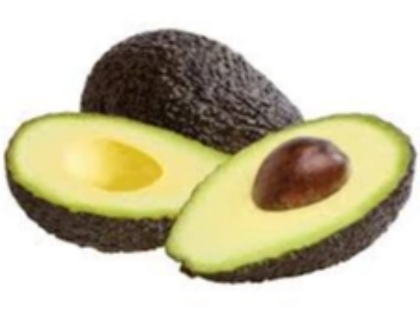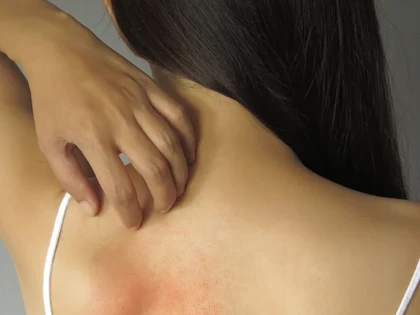When not to eat avocados
When to Avoid Avocado Foods Avocados are known to be extremely nutritious, being high in heart-healthy fats and low in calories and sugar, which serve as the basis for our beloved guacamole, but did you know they're actually a fruit? A ripe avocado should swell slightly when you squeeze it -- if it's badly dented or feels mushy and soft, it's probably overripe or spoiled and should be discarded.
The inside is brown

Sour smell
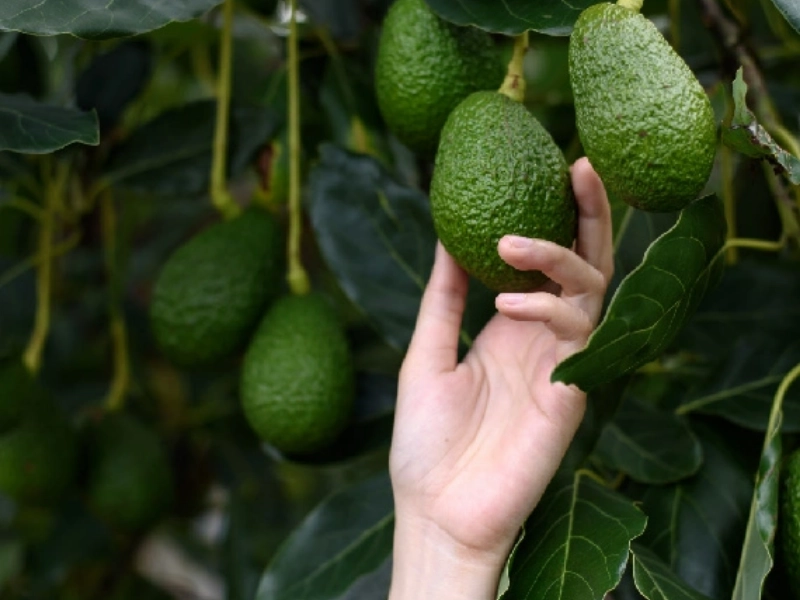 Spoiled or sour avocados should be thrown away immediately. Fruits with black spots, mold on the flesh, a stringy texture, an unpleasant taste, or a sour smell can all be signs that they should not be eaten because they could make you sick. Similarly, if you have a latex allergy, eating unripe avocados could trigger an allergic reaction because avocados contain a protein called persin that is equivalent to a protein found in the latex of rubber trees.
Compound Interest recommends storing avocados in the refrigerator, as they can spoil if exposed to room temperature or if bacteria gets into the flesh. Avocados should always be inspected before buying them at the grocery store, as they may have been improperly stored or spoiled by previous customers. Cut open an avocado and look at its light green hue to determine if it's okay or bad.
Spoiled or sour avocados should be thrown away immediately. Fruits with black spots, mold on the flesh, a stringy texture, an unpleasant taste, or a sour smell can all be signs that they should not be eaten because they could make you sick. Similarly, if you have a latex allergy, eating unripe avocados could trigger an allergic reaction because avocados contain a protein called persin that is equivalent to a protein found in the latex of rubber trees.
Compound Interest recommends storing avocados in the refrigerator, as they can spoil if exposed to room temperature or if bacteria gets into the flesh. Avocados should always be inspected before buying them at the grocery store, as they may have been improperly stored or spoiled by previous customers. Cut open an avocado and look at its light green hue to determine if it's okay or bad.
Mushy texture
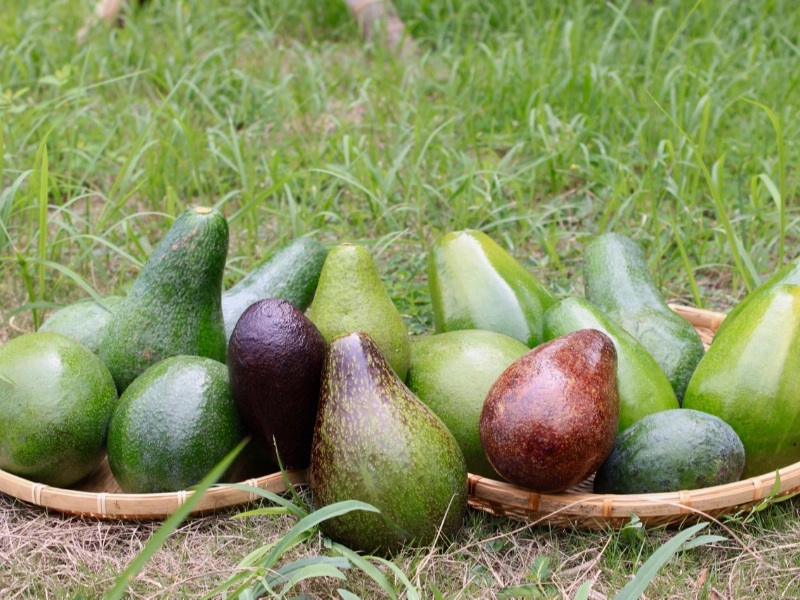 Avocados make a delicious and nutritious base for a variety of dishes, including salads, dips, and vegetarian brunches. The creamy fruit is also a great source of several vitamins, minerals, and good fats.
Avocados, like many other fruits and vegetables, can go bad quickly. Luckily, it's easy to tell if an avocado has gone bad before you buy it or use it in a recipe.
A smooth, firm skin tone is one of the most important features to consider. A soft or mushy avocado is overripe and should not be eaten. Another sign that an avocado is rotten is a sour or rotten flavor. If you notice any of these signs, avoid eating the avocado. Additionally, avocados that are dark on the outside should be avoided and not eaten as they are likely rotten. Also, mold should never be eaten, so if you find mold on the surface of an avocado, throw it away immediately.
Avocados make a delicious and nutritious base for a variety of dishes, including salads, dips, and vegetarian brunches. The creamy fruit is also a great source of several vitamins, minerals, and good fats.
Avocados, like many other fruits and vegetables, can go bad quickly. Luckily, it's easy to tell if an avocado has gone bad before you buy it or use it in a recipe.
A smooth, firm skin tone is one of the most important features to consider. A soft or mushy avocado is overripe and should not be eaten. Another sign that an avocado is rotten is a sour or rotten flavor. If you notice any of these signs, avoid eating the avocado. Additionally, avocados that are dark on the outside should be avoided and not eaten as they are likely rotten. Also, mold should never be eaten, so if you find mold on the surface of an avocado, throw it away immediately.
Type
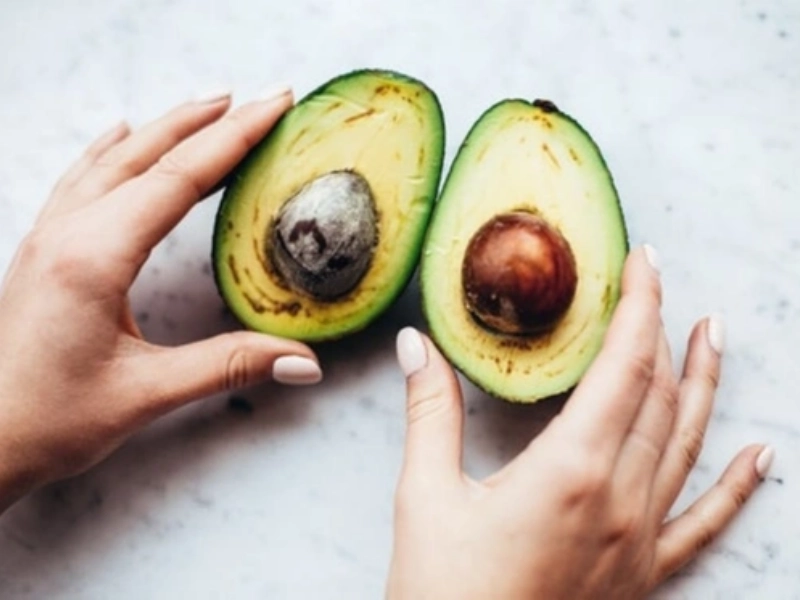 Although avocados are nutritious and good for your health, you should avoid eating them when they are moldy. If people with mold allergies inhale the spores, they can cause breathing difficulties. In addition, the spores can cause headaches, body aches, sore throat, sinus and nasal congestion, and eye discomfort.
Moldy avocados will spoil and should be thrown away immediately. If they taste sour or have a strange smell, they may be spoiled.
Avocados are rich in heart-healthy elements such as fiber, folate, potassium, and monounsaturated fats. They also contain Vitamin C, which helps prevent dryness and keeps skin clear. Lutein and zeaxanthin also help lower the chances of cancer and improve eye health. However, avocados should not be consumed by pregnant mothers as they can damage the mammary glands and reduce milk production. They should also be avoided by those with sensitive stomachs.
Although avocados are nutritious and good for your health, you should avoid eating them when they are moldy. If people with mold allergies inhale the spores, they can cause breathing difficulties. In addition, the spores can cause headaches, body aches, sore throat, sinus and nasal congestion, and eye discomfort.
Moldy avocados will spoil and should be thrown away immediately. If they taste sour or have a strange smell, they may be spoiled.
Avocados are rich in heart-healthy elements such as fiber, folate, potassium, and monounsaturated fats. They also contain Vitamin C, which helps prevent dryness and keeps skin clear. Lutein and zeaxanthin also help lower the chances of cancer and improve eye health. However, avocados should not be consumed by pregnant mothers as they can damage the mammary glands and reduce milk production. They should also be avoided by those with sensitive stomachs.






